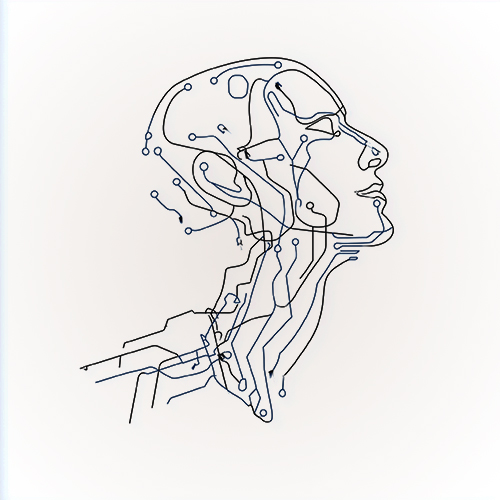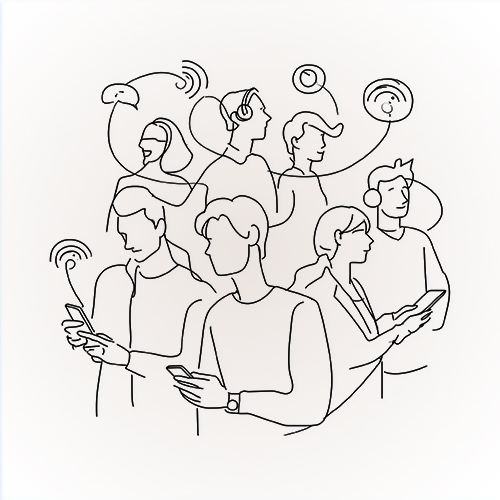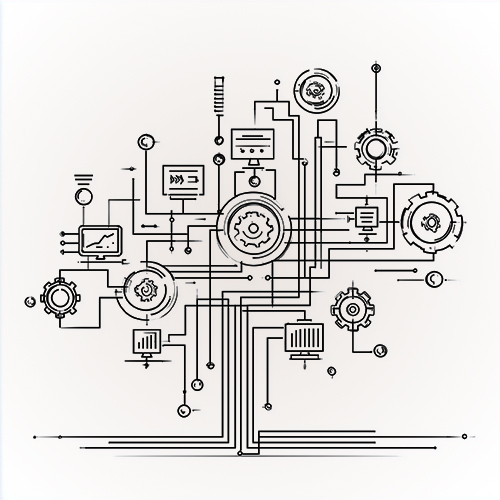Kuuntele case
“One of the biggest competitive advantages a company can have” – huge business opportunities in Responsible Data
Would you get involved with a business that does not use data responsibly? Few would – and more and more customers and partners are beginning to ask for tangible proof to put their minds at ease on this front. Trust is becoming one of the biggest competitive advantages a business can have, and it also opens up completely new business opportunities for Finnish companies.
What happened to businesses that ignored the fight against climate change? Perhaps nothing, at first. But then banks started to refuse them credit, investors to shy away from their shares and customers to avoid their products.
Leading Specialist Tiina Härkönen from the Finnish Innovation Fund Sitra believes that the same phenomenon will soon be witnessed in a new, important area – responsible use of data. “Trust will, in the future, be one of the biggest competitive advantages a company can have”, she says.
There are also significant economic implications in play. “The value of European data economy, i.e. the overall impacts of data-driven goods and services on the economy as a whole, is estimated at around EUR 830 billion in 2025”, Härkönen says.
Digitalisation has made both consumers and governments increasingly aware of the ethical issues involved in the use of data. Businesses are being asked tough questions; a big change is afoot. But what does responsibility actually mean in the context of data? And how can responsible use of data be turned into business opportunities that ultimately benefit all those involved as well as society as a whole?
Two fundamental issues of the data economy
There appear to be two fundamental issues that are holding back the data economy. The first relates to consumers’ concerns about their privacy and the level of control they have over how their personal information is used. The last few years have shown how targeted advertisements, for example, can be used for highly questionable purposes such as voter manipulation in some countries.
“The digital platform economy in its current form is a failure in this respect, and consumers are losing patience”, Härkönen says. The upshot is that people are increasingly reluctant to disclose their personal information and many are in fact deleting their online profiles.
“The digital platform economy in its current form is a failure in this respect, and consumers are losing patience”
Businesses are facing a different challenge. “We studied the data economies of four countries. According to the results, many companies resent the fact that American and Chinese data giants play by their own rules”, Härkönen explains. European companies feel that these big technology firms have too much of a head start for smaller competitors to stand a chance in the market.
Both of these issues can be overcome, however. “The solution lies in rewriting the rules and creating new data ecosystems that are based on trust and that genuinely benefit businesses, customers and the public alike”, Härkönen says.

Tiina Härkönen, johtava asiantuntija, Sitra & Anna Wäyrynen, Head of Data Insight, Digia
Digia takes on the challenge of building data ecosystems
Ecosystems will play an important role in the coming years. Creating enough data to develop innovative and genuinely useful services is only possible with a network-based approach.
“It takes just one operator to start building a data ecosystem that benefits the entire industry. It is important, however, that the rules of the ecosystem are agreed between all the parties involved and not set unilaterally by the founder”, says Anna Wäyrynen, who has been studying the business potential of data and the emerging concept of Responsible Data for years. She is the current Head of Data Insight at Digia.
Digia is actively involved in building these kinds of ecosystems. Wäyrynen explains that the role comes naturally to Digia, which has a long history of developing, for example, innovative data analysis tools, integrations and APIs. “Our broad customer base gives us great insight into the questions that intrigue different sectors in terms of data utilisation and sharing. We help our customers to build data sharing ecosystems based on, for instance, Sitra’s data network workshop model, which has worked well for us in the past”, Wäyrynen says.
She acknowledges that existing rivalries, for example, can make agreeing on the rules difficult in some sectors. An impartial third party such as Digia can help to smooth over differences.
Ultimately, however, everything comes down to trust. “The ability to share data across ecosystems will be a make-or-break test for businesses in the future. No one wants to share data with a company they cannot trust or be involved in an ecosystem that does not take its responsibility seriously”, Wäyrynen says.
The first is purely quantitative and involves publishing yearly statistics on the number of data protection impact assessments and information security analyses carried out in connection with customer projects. A high standard of data protection and information security is a key element of Responsible Data.
The second new indicator in the corporate responsibility framework relates to Digia’s commitment to ethical data utilisation. Digia has a range of methods and techniques for promoting ethical data utilisation, which can be mixed and matched depending on the project. Responsible use of data is nevertheless always a priority, and concrete actions are reported annually.
Read more about Digia’s approach to corporate responsibility >>
New business opportunities in using data for the common good
Data can do a lot of good in society, and using data for the common good is one way to demonstrate responsibility. Wäyrynen mentions healthcare technology as an example. A much higher standard of healthcare services could be provided if people’s medical records could be cross-referenced with information about, for example, their exercise routines and shopping habits. The public would have a completely new understanding of how to look after their health – and professionals such as doctors and personal trainers could use the same information.
Data can do a lot of good in society, and using data for the common good is one way to demonstrate responsibility.
“A surprisingly large percentage of people are happy to share personal information if they see a benefit in it for themselves, as long as their privacy and information security can be guaranteed. One can only imagine what the impact on our national economy and public health would be if we could access data from personal devices such as smartwatches and smart rings”, Härkönen says.
There is potential for similar solutions in just about any sector. Examples of previous applications include using data to calculate and visualise the carbon footprint of individuals and businesses in a way that encourages them to reduce their emissions. According to Wäyrynen, Digia has experimented with carbon footprint calculation technology at customer events.
“The right kind of data is also an important element of any circular economy; we need information to be able to process materials more efficiently”, she explains.
There is also considerable potential in using data in industrial environments. Kone Corporation is one of the pioneers of these kinds of ecosystems in Finland.
“Making a difference on a larger scale requires sharing data and working together”, Wäyrynen says.
The ethics of data utilisation – and its impact on the environment
There are also many practical aspects to Responsible Data. Businesses need to understand the nature of the data they hold and know how to use the information lawfully and responsibly. Wäyrynen emphasises the need for transparency and openness. The interests and rights of individuals must be given priority even over legal requirements.
Data protection is another high priority. “The recent data breach at the Vastaamo psychotherapy centre is a stark example. Failing to take the appropriate steps to protect people’s information can have extremely grim consequences”, Wäyrynen says.
Responsible use of artificial intelligence is a whole other chapter. “The key issue with AI is the line between decisions that must be taken by a human being and those that can be left to a computer”, Wäyrynen explains. Making sure that there is no inherent bias in the training data fed into an AI system that could compromise the performance of the system is also important.
The environmental impacts of data processing present yet another ethical dilemma. A huge amount of energy can be wasted by inefficient storing and processing of data. Climate-friendly blockchain management, for example, requires specialist expertise.
Wäyrynen nevertheless also sees a positive side. Data can be used to develop a vast array of ethically sustainable services – and entire ecosystems – that benefit everyone. One good example is an innovative AI application launched recently by the Finnish Red Cross, which helps the organisation to optimise the use of volunteers.
Härkönen also advocates an optimistic attitude. “We would like there to be more information available to people about the benefits of sharing data. This is a golden opportunity for businesses.”
Härkönen's image: Miikka Pirinen / Sitra
Wäyrynen's image: Jarkko Mikkonen
Pysy askeleen edellä
Teknologia muuttaa maailmaa kiihtyvällä vauhdilla. Digia Horizon -uutiskirje pitää sinut ajan tasalla uusimmista ilmiöistä ja siitä, miten teknologia auttaa rakentamaan älykästä liiketoimintaa.




